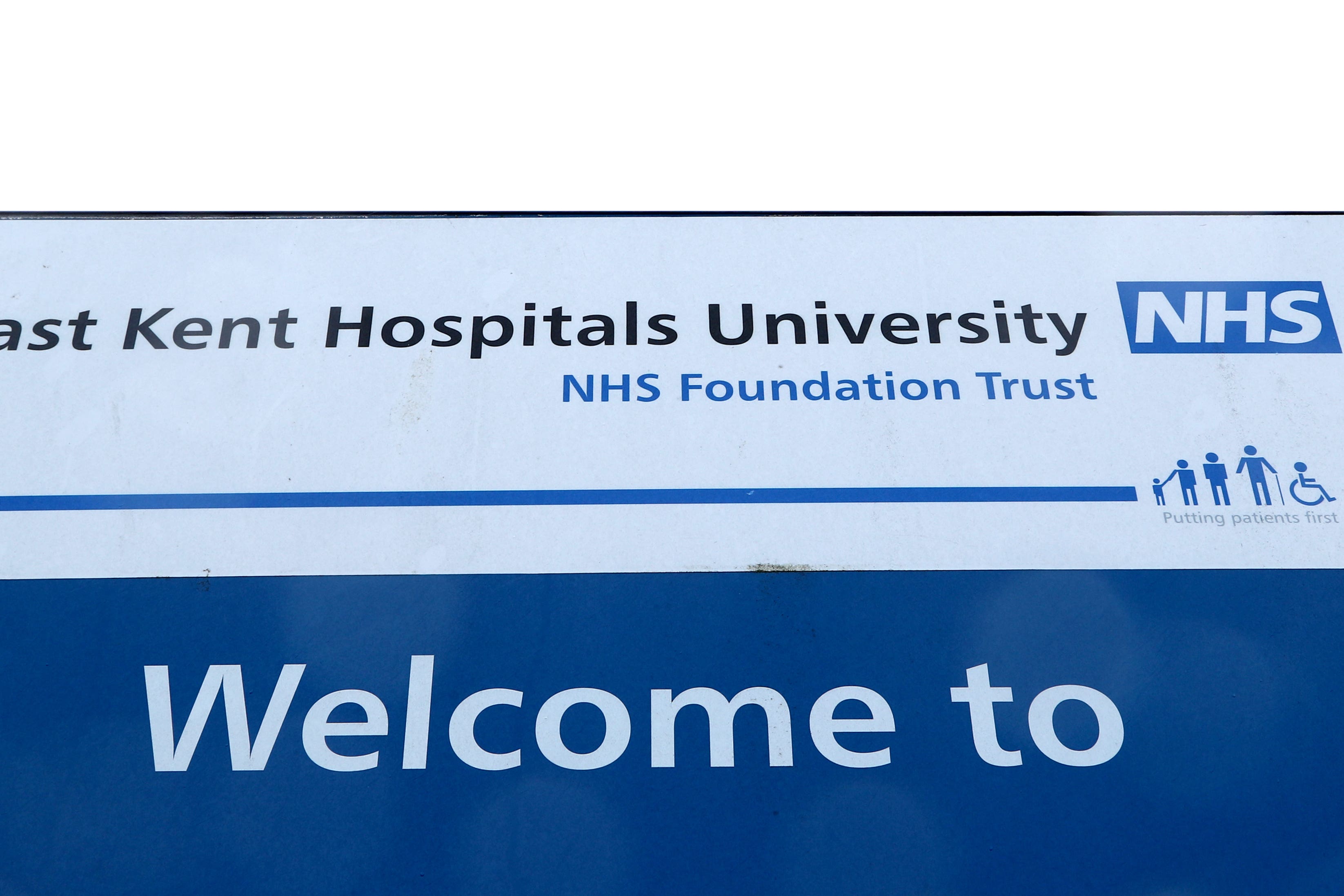Relatives of women who died with herpes after childbirth suing NHS trust
Kimberley Sampson and Samantha Mulcahy died in 2018 after having Caesarean sections at hospitals in Kent.

The relatives of two women who died with herpes after giving birth are bringing clinical negligence claims against an NHS trust at the High Court.
Kimberley Sampson, 29, and Samantha Mulcahy, 32, died six weeks apart in 2018 after having Caesarean sections performed by the same surgeon at hospitals in Kent run by East Kent Hospitals University NHS Foundation Trust.
Ms Sampson’s mother Yvette Sampson and Ms Mulcahy’s widower Ryan Mulcahy are pursuing separate legal challenges against the trust over alleged failures in post-operative care.
They also claim that the surgeon, who cannot be named for legal reasons, was the source of the two women’s infection with the herpes simplex virus.
The trust denies liability in the cases, arguing that the pair were not exposed to the virus during their operations or by the surgeon.
Preliminary hearings in the cases this week marked the latest development in the families’ years-long efforts to get answers on how the women were infected.
In July last year, coroner Catherine Wood concluded the two women died of multiple organ failure as a consequence of the dissemination of the virus acquired before or around the time of delivery of their children.
The coroner in the Mid Kent and Medway Coroners investigation also said Ms Sampson and Ms Mulcahy could have been treated sooner when their conditions deteriorated.
After the inquest into the deaths, trust bosses said they were “truly sorry” over the “additional and unnecessary suffering” it caused the families “through failing to answer their questions after Kimberley and Samantha’s deaths and contributing to the delays in their inquests being heard”.
Ms Mulcahy’s mother, Nicola Foster, vowed to keep “fighting for the truth” and said the coroner’s findings “gave no answer at all”.
Her later bid to challenge the the coroner’s conclusions at the High Court was rejected by a judge in February this year.
At an online hearing on Thursday, lawyers for Mrs Sampson and Mr Mulcahy argued that their cases should be considered jointly at a trial.
Richard Baker KC, for the relatives, said it was argued in both cases that the operating surgeon was a “common source” of the women’s infection.
He said that if the cases were not considered together there could be the “odd” outcome of inconsistent findings made by different judges over the surgeon’s role.
In written arguments, the barrister said the women had suffered a “rare complication”, with their relatives alleging the trust failed to diagnose the virus “after they began to exhibit signs and symptoms of the infection”.
The coroner previously concluded on the balance of probabilities it was “unlikely” the infections came from the surgeon, with the inquest told his hands were fully scrubbed and double-gloved and he was wearing a mask during procedures.
He said he had no lesions and was not infected, though he was not tested, the inquest heard.
Clodagh Bradley KC, for the trust, said on Thursday that “no court could safely conclude that the surgeon was infected with (the herpes virus) because there is no evidence of that at all”.
She said a “new” allegation by Mr Mulcahy that he saw “facial touching” by the surgeon was “unfathomable” and the relatives were trying to “bolster one weak case against another”.
In written arguments, the barrister said the trust opposed the bid for the cases to be linked because it would cause “delay, expense and inconvenience” and add to the surgeon’s “physical and mental distress already suffered”.
On Friday, Judge Charles Bagot KC concluded that the two cases should not be consolidated as there were “differences in the way that the cases are put and the issues”.
He said linking the claims would be more expensive, complicated and slower, adding that “there is not a real risk that there would be inconsistent findings made in these cases”.
Bookmark popover
Removed from bookmarks